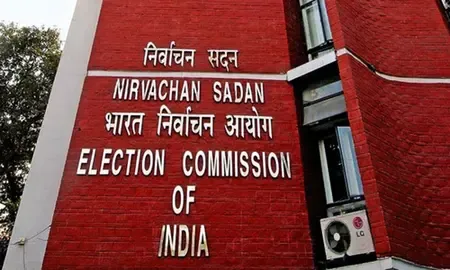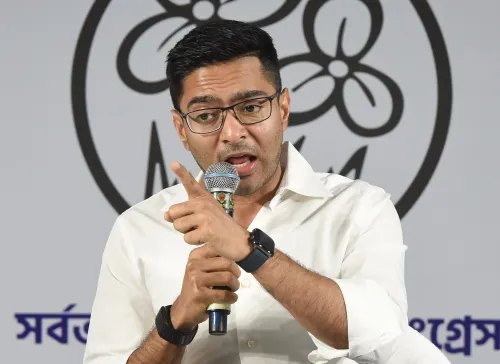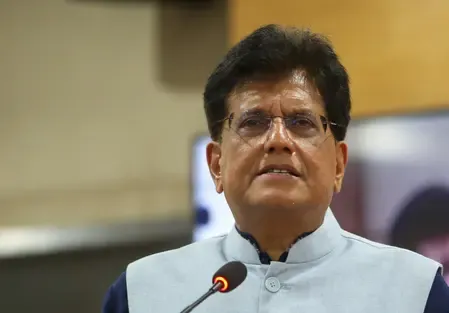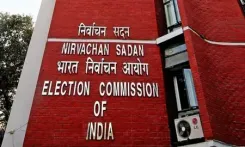MHA Imposes Five-Year Ban on Mirwaiz Umar's AAC and JKIM
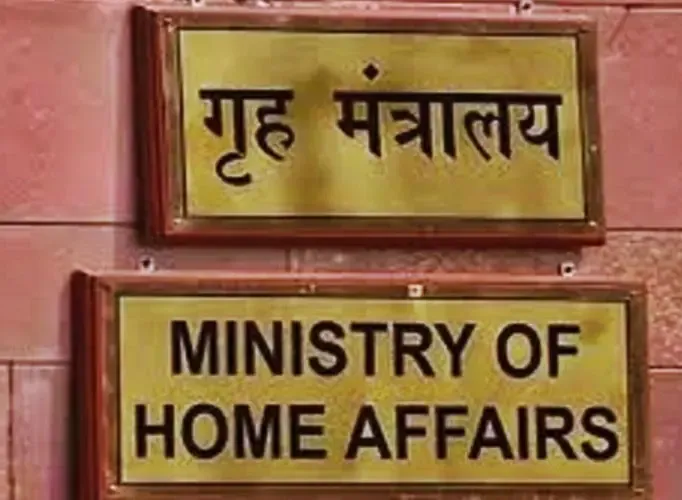
Synopsis
Key Takeaways
- MHA bans AAC and JKIM for five years.
- Both organizations accused of supporting terrorism.
- Mirwaiz Umer Farooq leads AAC.
- Masroor Abbas Ansari heads JKIM.
- Government cites need to protect national security.
Srinagar, March 11 (NationPress) The Union Ministry of Home Affairs (MHA) announced on Tuesday the implementation of two distinct notifications prohibiting the Awami Action Committee (AAC), led by Mirwaiz Umer Farooq, and the J&K Ittehad-ul-Muslimeen (JKIM) for a duration of five years under the Unlawful Activities (Prevention) Act, 1967.
Mirwaiz Umer Farooq is at the helm of the AAC, while the JKIM is under the leadership of the Shia figure, Masroor Abbas Ansari.
Interestingly, Mirwaiz Umar Farooq currently enjoys protection from a contingent of the CRPF.
The prohibition on the AAC, led by the Mirwaiz, necessitates a reassessment of his security arrangement by the government.
The MHA notification indicated that members of the AAC have been implicated in supporting terrorist activities, disseminating anti-India narratives, and collecting funds for secessionist efforts in Jammu and Kashmir.
The government has also charged the AAC with inciting violence, fostering discontent against the Indian state, and advocating for armed resistance.
Numerous criminal cases have been documented against the AAC and its leadership, encompassing allegations of sedition, unlawful assembly, and incitement of violence.
Reports have been filed at various police stations in Srinagar, including Nowhatta, Safakadal, and Kothi Bagh, against Mirwaiz Umer Farooq and other AAC affiliates for making speeches against the Indian government, endorsing electoral boycotts, and instigating protests.
The National Investigation Agency (NIA) has also submitted a chargesheet against AAC spokesperson, Aftab Ahmad Shah, and others for their purported involvement in anti-national activities.
The government believes that without intervention, the AAC will persist in endorsing militancy, disrupting public order, and inflaming separatist movements in Jammu and Kashmir. Invoking Section 3 of the UAPA, the government has instituted a five-year ban on the AAC, effective immediately.
The notification asserted that this ban is crucial to avert the group from further participation in activities harmful to India’s national security.
This action is part of a broader crackdown on organizations accused of fostering separatism and militancy in Jammu and Kashmir.
In the second notification, the MHA declared that JKIM members have been actively engaging in terrorist support, conducting anti-India propaganda, and raising funds to promote separatist and secessionist agendas within Jammu and Kashmir.
The government has further accused the group of inciting public unrest, advocating violence, and working against the nation’s constitutional framework.
The MHA expressed that if JKIM's actions are not restrained, it would continue to promote anti-national sentiments, challenge Jammu and Kashmir’s integration with India, and disturb public order.
In light of these concerns, the government has imposed a five-year ban on the organization, effective immediately, under Section 3 of the Unlawful Activities (Prevention) Act, 1967.
JKIM was established by Molvi Abbas Ansari, and following his passing, the organization is now led by his son, Masroor Abbas Ansari.
Similarly, the AAC was founded in 1963 by Mirwaiz Moulana Farooq during the agitation for the recovery of the holy relics.
After the assassination of Mirwaiz Maulana Farooq, the AAC was subsequently led by his son, Mirwaiz Umer Farooq.


